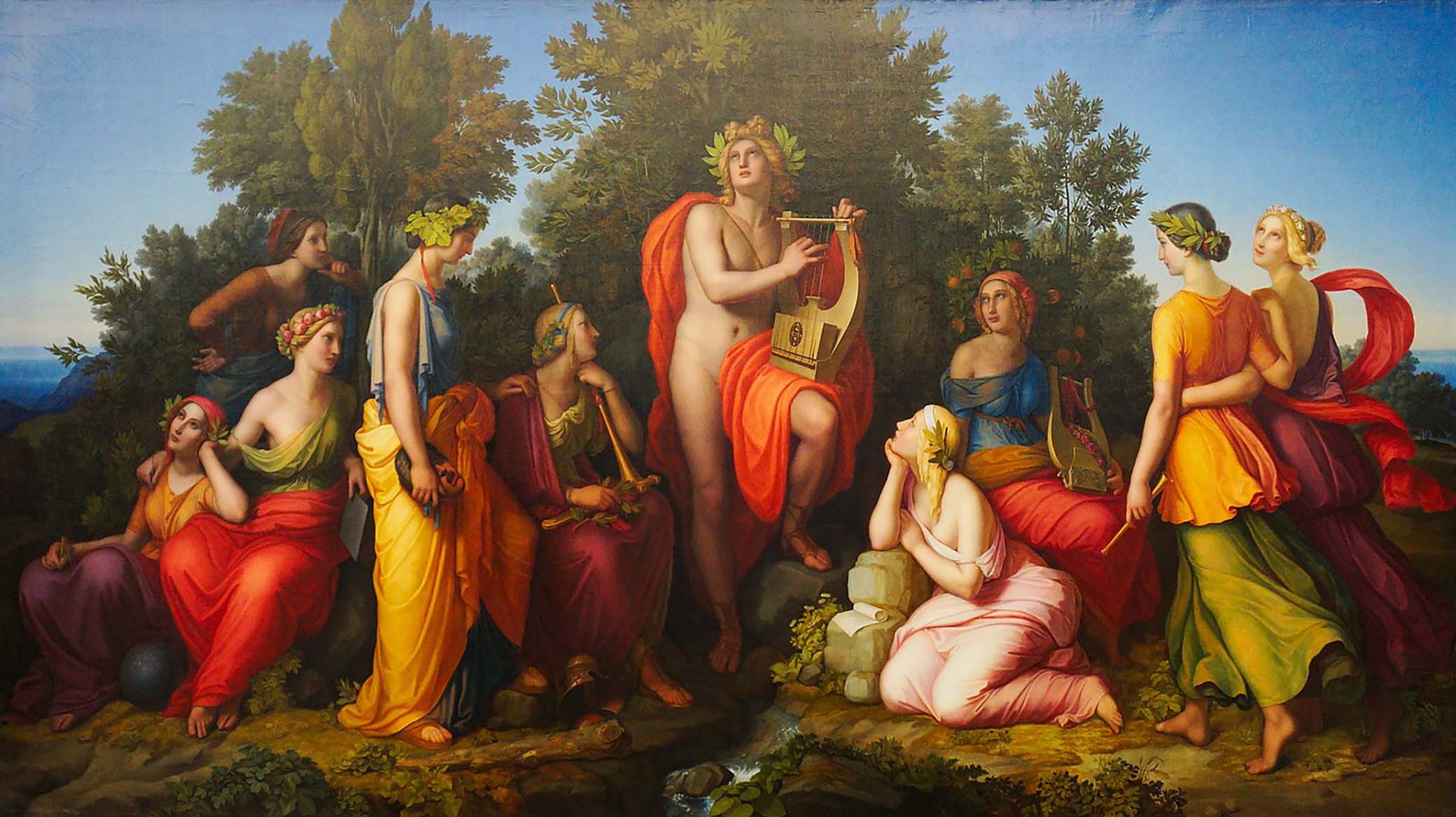
Apollo and the Muses, by Heinrich Maria von Hess, 1826. Wikimedia Commons.
The story of my writing life has two parts: before and after Lewis Lapham. In the before, I was a writer of fictions in the American postmodern style. My “coach,” as he called himself, was the late John Barth. The “after” began when Lewis and Roger Hodge accepted my essay “The Middle Mind” for Harper’s Magazine, which was followed soon by a book of the same name and six more works of social criticism, one of which, The Science Delusion, I dedicated to Lewis.
As writers, Lewis and I were both stylists. We knew that even social criticism should be driven not only by a desire to say what is true but to say it through voice, something Microsoft’s Copilot AI cannot help with. That gave us a natural connection but at a rarified level. At a more fundamental level, we were both San Franciscans. He was the son of a banker and the grandson of a mayor of San Francisco, while I grew up across the Bay in the postwar suburb of San Lorenzo. But like a lot of suburban kids in the 1960s and early 1970s, my heart was in San Francisco, with Willie Mays, and in the Haight-Ashbury, where I lived for some years in the late 1960s.
When he was a young reporter for the San Francisco Examiner, Lewis covered a story about two couples living next door to each other in one of San Lorenzo’s instant neighborhoods. Each of the four had fallen in love with the person of the opposite sex living next door, so rather than get needlessly messy with divorce and division of property, they agreed simply to move one member of each couple to the opposite house.
But what most struck Lewis was that the houses were architectural palindromes—they read the same whether backward or forward. The floor plans were all the same, but alternate houses had the plan reversed, as in a mirror image. Entering a neighbor’s house felt like going through Alice’s looking glass, where things were “curiouser and curiouser” on the other side. You’d enter and wonder, “Why is that wall facing the wrong way? The bathroom’s supposed to be over there.” For the bemused Lapham, the houses were palindromes and so, apparently, were the people.
“Lewis,” I said, “I grew up in one of those houses.” He looked at me in wonder, as indeed I often look at myself. You know what I mean. As the Talking Heads sang, “Well, how did I get here?” Lewis was sure about how he got to where he was. He just wasn’t always sure that he liked it.
After Lewis created Lapham’s Quarterly, he would sometimes call me and say, “Hi, Curtis, the next issue is about X. I want you to write an essay for it.” Even if I protested that I knew nothing about X, I usually ended up writing the essay, and he was usually happy with the result. He had a confident way of asking for new work, which often produced something like writerly miracles. For example, before the last issue of the magazine to appear in print, Freedom, he asked me to write the introductory preamble, and I said, “Yes, of course,” thinking, “Oh boy, now what have I gotten myself into?” But then it struck me: “George Carlin.” Yeah, George Carlin, of course. It was clear to me before I’d hung up the phone. The whole thing seemed to appear to me, a gift from a spendthrift muse whose name was Lewis.
Having worked with independent literary publishers like FC2 and Dalkey Archive Press, I was acutely conscious of Lapham Quarterly’s need for a working endowment. So Lewis and I were in Las Vegas with the late Barbara Ehrenreich at the invitation of the University of Nevada at Las Vegas. One night, we strolled around the Bellagio casino, under Dale Chihuly’s colorful blown-glass ceiling. I bought ten $1 tokens for the slot machines and handed them to Lewis, saying, “Maybe Vegas can do some fundraising for you.” It was fun to see him pulling the handle, but he didn’t make any progress on the endowment.
I’m seventy-three years old as I write this, less than a year after Lewis’ passing. Like Barth and Ehrenreich (and Willie Mays), he, too, is now one of the “late.” In my mind, I still live in the world that they helped to create, but that world, too, seems now more late than not.
The young wander around us, amygdala deep in their iPhones, but, like the Jews during the Babylonian captivity, writers from every historical epoch have a refuge, a fit place for a “faithful remnant,” in Lapham’s Quarterly.